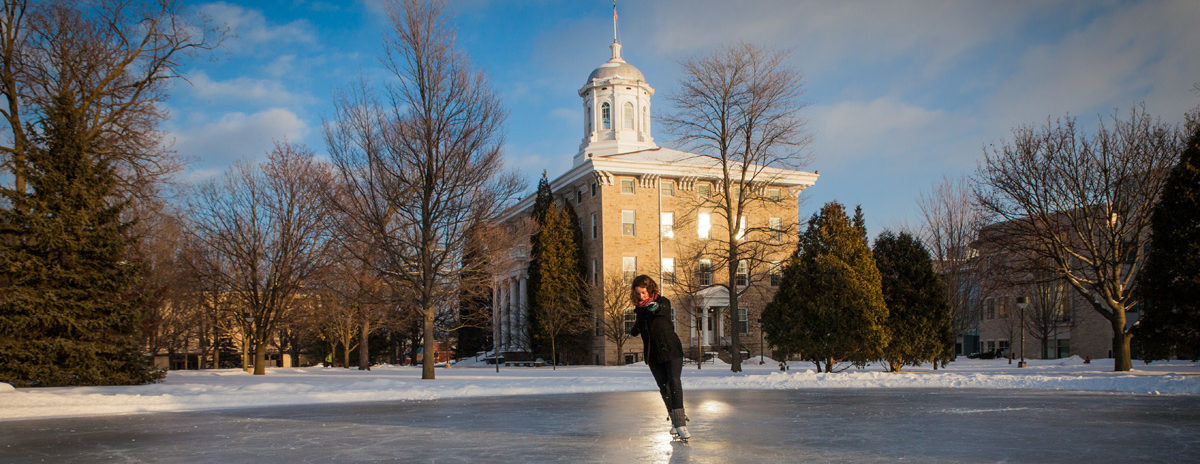Kate Frost is one of Lawrence’s Associate Deans of Academic Services. She works with students in a variety of capacities – from transitioning to college, to facing challenges, to life After Lawrence – to ensure their college experience is a meaningful and productive one. She wrote this post for us in 2014, but it has such good, timeless stuff in it that we want to share it with you again.
(You can learn more about the Center for Academic Success and other services it provides here.)
—
“The first few weeks of my freshman year were awful,” a student recently told me. “I came into college feeling relatively confident about my ability to be successful because I’d done really well in high school. I was at the top of my class. But then I failed my first calculus quiz. And I just started to unravel.”
In the Center for Academic Success, stories like this are not uncommon. Facing challenge can be especially difficult for incoming students, many of whom have experienced high levels of success in the past. Struggle can feel like failure. And failure can make us feel like we are unraveling.
Like my colleagues, I understand that students are much more complex than a quiz score or even a GPA. Students need different kinds of support in order to reach their academic goals. They need choices. And it helps if those choices are easy to find and easy to access.
We recently reorganized our entire center with this in mind. The Center for Academic Success is now the home to all of the following, all in one place!
Tutoring. Peer tutoring has been a strong part of what we do for many, many years. About 80% of our students will have utilized the services of a tutor during their time at Lawrence, which says a great deal about the quality of the peer tutors we employ (and we employ over 200 of them!) The culture here enforces the idea that tutoring is not just for students who are struggling. Students at Lawrence understand that there is wisdom in strengthening skills at any level.
Academic Accommodations/Accessibility Services. We recently added a new coordinator position that focuses almost exclusively on providing accommodations/accessibility services. We understand that having the appropriate support in place, in and out of the classroom, can make all the difference for students who have physical or sensory limitations, attention or cognitive processing deficits, learning disabilities, or physical or mental health conditions. .
Academic Skills Building. We offer workshops and individual sessions on academic skills like time management, organization, critical reading, note-taking, effective study and exam preparation. We also provide online tools which are available to students at any time.
Academic Counseling. Sometimes students are feeling challenged but need help unpacking the problem. One-on-one academic counseling allows us to understand a student’s experience more deeply in order to help them find the resources that would be most useful. We provide cognitive and affective strategies that allow students to develop coping strategies they can continue to use in the future. We also suggest other resources on campus that might be helpful to students.
Success Course. We offer a for-credit, discussion-based course called Investigating Academic Success: Cognitive and Affective theories in practice in which we provide more in depth analyses of current, evidence-based success theory. Students then have opportunities to apply those theories to their own lives. Emphasis is on self-awareness, effective problem solving, increasing motivation, development of appropriate coping strategies, and lifelong learning. Students tell us the course increases their resiliency by giving them better strategies to use when they face challenges.
English as a Second Language. ESL courses are offered each term to support students’ study at Lawrence. A limited number of directed study and tutorial courses are also available for students interesting in pursuing a specific goal in a one-on-one or small group class. The Center also provides ESL tutoring for students seeking assistance with their English language skills.
We even also have a lounge, a lending library, and a computer lab available for students!
I asked that student who felt she started to unravel freshman year what advice she would give a new first year student now that she has been here a while.
“Don’t wait to get the help. I’m not kidding! I had no idea so much help was available here. When you feel the first thread start to come loose, head over!”
Kate Frost
Associate Dean of Academic Services

